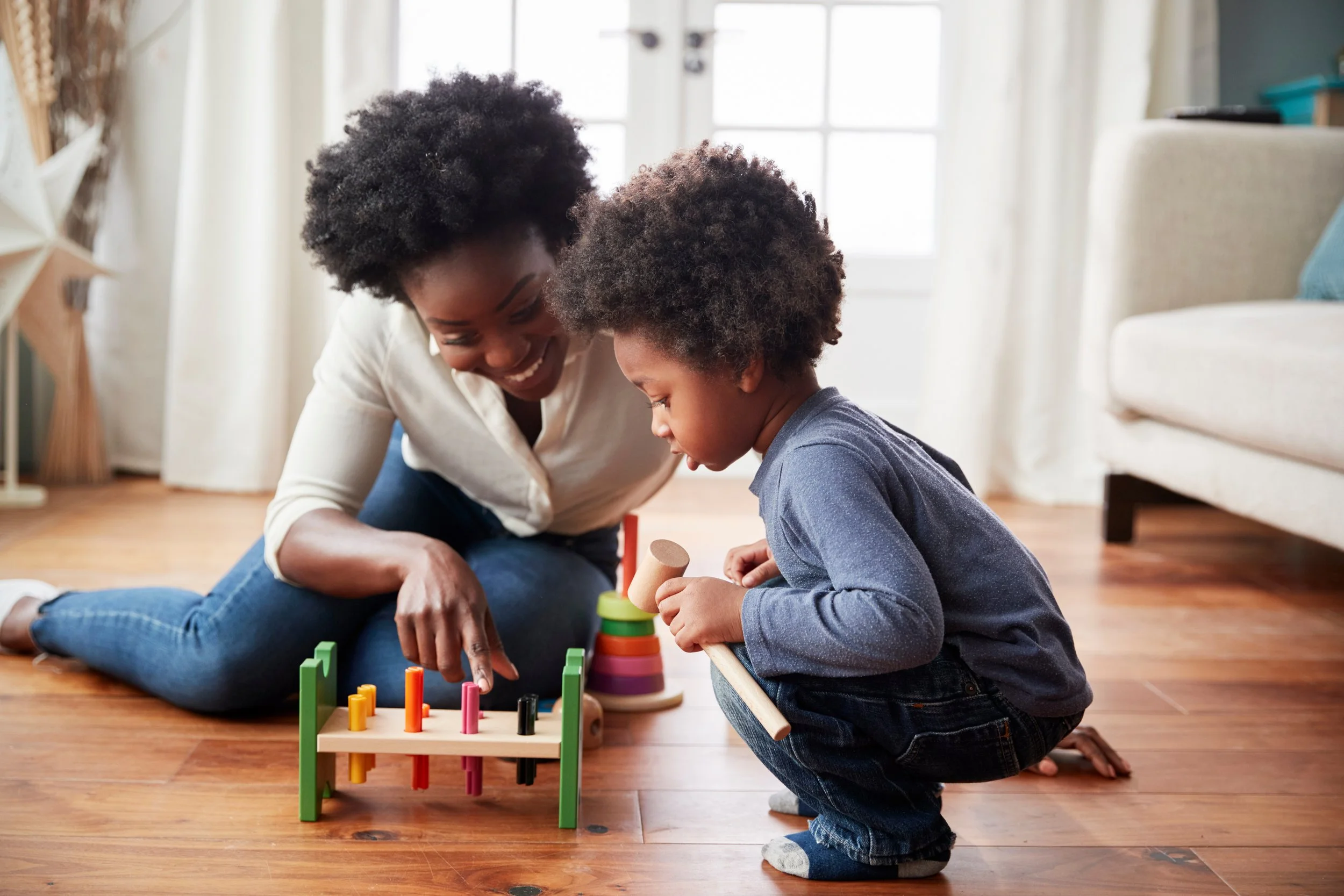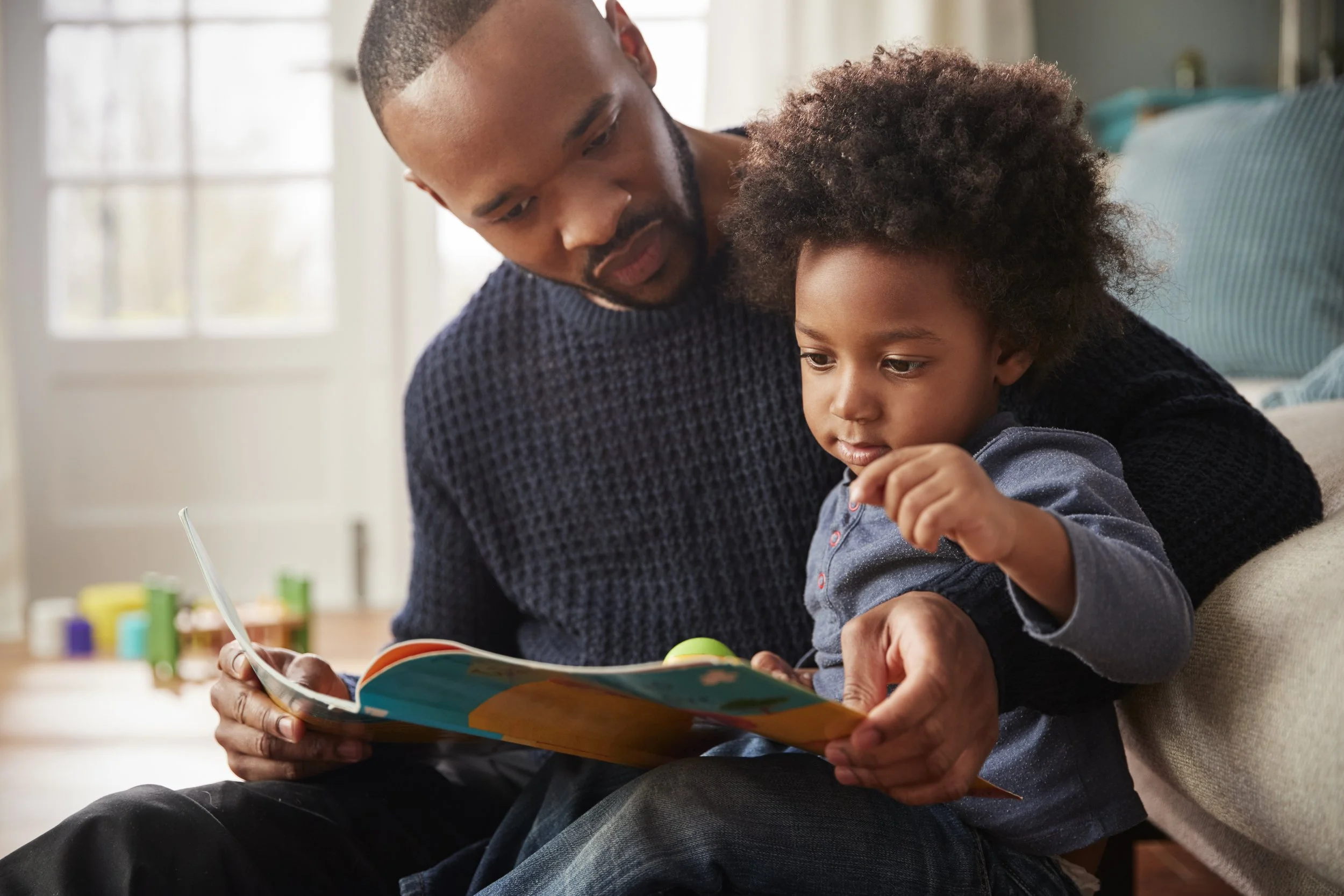18 Month Milestones: Speech & Language
Your 18-month-old is growing up so fast, and it’s amazing to watch them learn new things! As they become more curious and independent, their communication skills are developing right alongside them. In this post, we’ll explore some important communication milestones to look for at this exciting stage.
As speech therapists and healthcare professionals, we use milestones as a way to track a child’s development. However, it’s essential to understand that milestones by themselves don’t diagnose a language delay or disorder. If your 18-month-old is behind on one or even a few milestones, it doesn’t necessarily mean there’s a delay. The purpose of tracking these milestones is to help determine if further evaluation might be needed.
With that in mind, let’s explore some common speech and language skills your 18-month-old may be developing.
18 Month Development Checklist - Communication Skills
Expression Skills
How does your child expresses their wants and needs?
▢ They say about 18 words on their own [6]
▢ They babble sometimes and speak in their own language (in speech therapy, we call this jargon) [1, 2]
▢ They try to copy words you say, even if it doesn’t sound perfect [7]
▢ They use words to label familiar/common people, places, activities, and items in their lives [8]
▢ They can communicate their wants and needs, even if they don’t know the words. They may point, show, or tell you what they need. [4]
Pronunciation Skills
Which sounds should you be listening for?
▢ Consonant Sounds: P, B, D, M, N, H, W [5] (Listen for sounds when babbling, talking in gibberish, or talking.)
▢ Vowel Sounds: Ah, Aye, E, Oh, Oo, I [1]
▢ They will leave sounds off the ends of words (“dah” for dog) - this is age-appropriate at 18 months. [1]
Understanding Skills
What words does your toddler know?
▢ They understand more than they can say. [7]
▢ They follow directions: come here, give me, stop, wait, or throw it away [4]
▢ They begin to understand questions. They may look or show you where something is if you ask, “Where’s your ___?” [8]
▢ They learn the meaning of new words quickly [7]
Social Communication Skills
How does your little one play and interact with others?
▢ They smile and laugh when playing with their parents [3]
▢ They enjoy playing with toys
▢ They engage in functional play (learn more about play development here)
References:
Bernthal, J. E., Bankson, N. W., & Flipsen, P. (2022). Speech sound disorders in children: Articulation & phonological disorders. Paul H. Brookes Publishing Company.
Capute, A. J., Palmer, F. B., Shapiro, B. K., Wachtel, R. C., Schmidt, S., & Ross, A. (1986). Clinical linguistic and auditory milestone scale: Prediction of cognition in infancy. Developmental Medicine & Child Neurology, 28(6), 762-771.
Coplan, J., Gleason, J. R., Ryan, R., Burke, M. G., & Williams, M. L. (1982). Validation of an early language milestone scale in a high-risk population. Pediatrics, 70(5), 677-683.
Crais, E., Douglas, D. D., & Campbell, C. C. (2004). The intersection of the development of gestures and intentionality.
Crowe, K., & McLeod, S. (2020). Children's English consonant acquisition in the United States: A review. American Journal of Speech-Language Pathology, 29(4), 2155-2169.
Fenson, L., Marchman, A., Thal, D., Dale, P., Reznick, J. S., & Bates, E. (2007). MacArthur Communicative Development Inventories: User's guide and technical manual. Paul H. Brookes.
Roseberry-McKibbin, C., Hegde, M. N., & Tellis, G. M. (2019). An advanced review of speech language pathology: Preparation for the Praxis SLP and comprehensive examination. PRO-ED, Incorporated.
Sheldrick, R. C., Schlichting, L. E., Berger, B., Clyne, A., Ni, P., Perrin, E. C., & Vivier, P. M. (2019). Establishing new norms for developmental milestones. Pediatrics, 144(6).
Vocabulary milestones for 18 month olds
At 18 months old, the number of words speech therapists expect varies greatly! Toddlers at this age say between 15-200 words roughly.
There is such a big range at this stage because each child is developing at their own pace. This gap continues throughout toddlerhood, and begins to close when children start elementary school. And, there is some evidence that supports boys are more likely to develop motor skills early on and girls tend to develop communication first.
If you are looking to support your toddler in expanding the number of words your toddler can say, check out this free lesson, which teaches one of my favorite speech therapy strategies for expanding vocabulary.
How do 18 month olds tell you what they want or need?
At this age, toddlers use many different strategies to let you know what they want and need. Watch for your toddler to communicate with a combination of gestures (like pointing), words, attempts at words, and facial expressions.
Toddlers at this age often speak in gibberish. Learn more about this phenomenon here. Speech therapists refer to gibberish as jargon. Toddlers seem to have made up their own language, and you might be able to understand the gist of what they are wanting to say based on their tone of voice.
As vocabulary grows, toddlers will rely more on words to communicate than gestures. You can expect some short periods of regression if your child is sick, uncomfortable (e.g., teeth coming in), or not sleeping well.
If you notice that your child has stopped saying words and they haven’t reappeared, talk to your pediatrician about ways you can help support your child in recovering those skills.
Suggested Reading: How many words should an 18 month old say?
What do 18-month-olds understand?
The number of words toddlers can understand at this age has grown to the hundreds. On average, 18 month olds can understand about 200 words!
As the number of words they understand increases, they begin to follow some familiar directions. The directions they follow are the ones that they have gotten to practice over and over again. For example, “Get your shoes” and “Bring me your cup.”
Download the checklist now ↓
At Home Language Activity for 18 Month Olds
Grow Your Toddler's Communication During Snack Time
Snack Time Prep
Practice with new directions as you are preparing a snack. Tell your child to: mix, open, pour, or close. Show your child what you want them to do as you introduce new commands.
Showing your child what to do and repeating the commands can help your child learn faster.
Eating Snack
During snack time, talk about what is happening with your toddler. “We’re eating an apple. The apple tastes so sweet. - Crunch Crunch Crunch - That was a bit bite of apple. Yum-Yum!” Label the utensils you use, foods you eat, drinks you drink, and actions you are taking.
And here’s a pro speech tip - pick 5 words that you think you can repeat at least 10 times each during snack. Repeating a few words 10+ times in a single activity is more helpful for toddlers learning new words as compared to saying a hundred different words.
Learn why talking about what’s happening can help your child learn new words in our free lesson about focused stimulation.
As you eat your snack, you may also teach your child to answer some simple questions, like "Do you want more?" and "Do you want apple or pear?"
Clean Up
Finally, as you clean up from snack, you can secretively assess the words your child understands. When you tell them, "Bring me your napkin." Do they bring it to you? If not, this is a great opportunity for learning.
Show your child what you're talking about by pointing to it or holding it. Then say its name at least 3 times.
Toddlers learn through repetition, so the more opportunities to practice with the same words, the better.
When practicing during snack time, look for your toddler to:
▢ Follow a variety of directions (you may help!)
▢ Answer simple questions
▢ Use words and phrases to talk about snack and ask for more
You May Also Enjoy Reading:
Parents Also Asked:
-
18 month olds should say at least 15 different words; but there are no particular words an 18 month old should or shouldn’t be saying.
As a general rule of thumb listen for your little one to be saying words for the things that they see or do every day. Toddlers are most likely to say words to get something they really like or avoid something they don’t want.
-
3 common signs of speech delay at 18 months are:
Not talking yet
Not following directions
Doesn’t enjoy playing with others
Watch this video to learn 10 signs of speech delay at 18 months.
If you suspect a speech delay be sure to talk to your child’s pediatrician.
-
There are several speech therapy strategies you can use at home to encourage your 18 month old to talk, including: focused stimulation, face-to-face, and following your child’s lead to get in more practice.
Written By: Stephanie Keffer, MS CCC-SLP
© 2020-2025. Stephanie Keffer Hatleli, MS CCC-SLP. All Rights Reserved.The content offered on ToddlerTalk.com is for informational purposes only. Toddler Talk is not engaged in rendering professional advice, whether medical or otherwise, to individual users or their children or families. No content on this site, regardless of date, should ever be used as a substitute for direct medical advice from your doctor, speech language pathologist, or other health professional. By accessing the content on ToddlerTalk.com, you acknowledge and agree that you are accepting the responsibility for your child’s health and well-being. In return for providing you with information related to home speech and language practice, you waive any claims that you or your child may have as a result of utilizing the content on ToddlerTalk.com.




